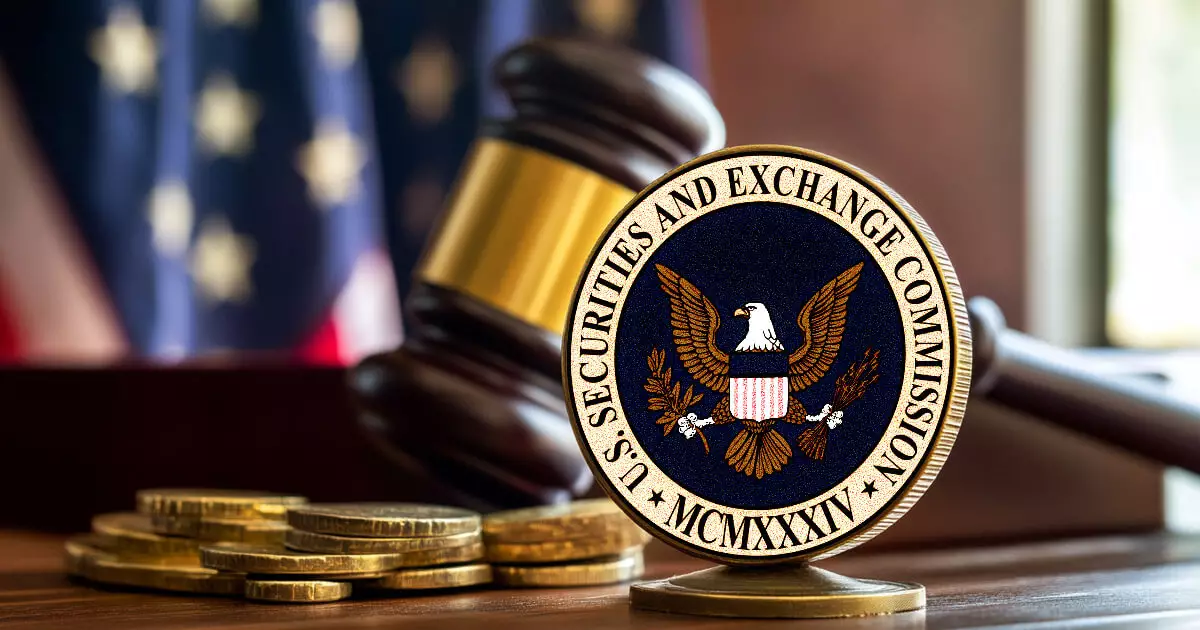In a significant move that has sent ripples through the cryptocurrency market, the Securities and Exchange Commission (SEC) charged Chicago-based crypto market maker Cumberland DRW on October 10 for allegedly functioning as an unregistered securities dealer. This action highlights an ongoing struggle within the crypto sector concerning regulatory compliance and the classification of digital assets under existing securities laws.
The SEC’s complaint against Cumberland claims that the company has executed trades amounting to over $2 billion in cryptocurrencies deemed securities since March 2018. The trades were conducted primarily through the firm’s trading platform, Marea, as well as via direct phone transactions. The Commission emphasizes that this operations model transgresses federal securities regulations that were instituted to safeguard investors, as these laws mandate that all dealers in securities must be registered.
Jorge G. Tenreiro, the acting chief of the SEC’s Crypto Assets and Cyber Unit, firmly stated, “The federal securities laws require all dealers in all securities to register with the Commission, and those who operate in the crypto asset markets are no exception.” This statement reflects the SEC’s position that regardless of a cryptocurrency’s classification as a security or commodity, those participating in its trading must still adhere to regulatory guidelines.
The SEC’s categorization of Cumberland’s activities gives insight into the agency’s broader mission of regulating the crypto market. Despite arguments from members of the crypto community advocating that many tokens should be classified as commodities, the SEC contends that tokens can indeed be treated as securities when involved in sales or offerings that aim to foster investment. This creates a compelling case for requiring market makers to register formally, emphasizing the urgency to protect investors navigating this volatile marketplace.
As highlighted in the SEC’s complaint, Cumberland presents itself as a leading liquidity provider in the crypto industry. This self-identification strategically positions them within a competitive market, yet it simultaneously increases their liability under scrutiny from regulators who wish to enforce compliance with established laws.
In a robust rebuttal to the SEC’s allegations, Cumberland declared that the regulatory body is attempting to hinder innovation and limit the participation of companies within the cryptocurrency space. The firm insisted that it will not alter its operational practices in light of the SEC’s enforcement action, asserting their commitment to a stringent compliance framework and rigorous adherence to regulations, even as those regulations evolve.
Moreover, Cumberland’s website mentions that it received broker-dealer registration in 2019, with explicit guidance from SEC Chairman Gary Gensler. However, the firm highlights the limitations of this license, which only pertains to the trading of Bitcoin (BTC) and Ethereum (ETH). They contend that their sustained dialogue with regulators over the past five years, involving substantial transparency regarding their activities, demonstrates their commitment to lawful operations.
The legal landscape surrounding Cumberland isn’t new. The firm has a historical backdrop of market manipulation charges set forth by the Commodity Futures Trading Commission (CFTC) in November 2013, which concluded with a ruling in 2018 that deemed the CFTC failed to present sufficient evidence of manipulation. This experience informs Cumberland’s current stance that not only is their business compliant, but that they have also operated transparently and in good faith.
Cumberland’s declaration that registering as a broker-dealer for digital assets is merely an illusion underlines their ongoing struggle with compliance expectations in the rapidly evolving digital asset space. The firm’s current holdings are substantial, exceeding $81.5 million in various cryptocurrencies. Among these investments, Bitcoin dominates with $44.2 million, while other assets include sizeable amounts in Ethereum and stablecoins such as Tether USD (USDT) and USD Coin (USDC).
This lawsuit stands at the intersection of regulatory oversight and innovation in the cryptocurrency market. As the SEC continues to tighten its grip on market participants, the implications extend well beyond Cumberland DRW. Companies operating in the unguided world of crypto must now reevaluate their compliance measures in anticipation of increased scrutiny. The unfolding case against Cumberland may serve as a precursor to additional regulatory actions, leading many crypto firms to contemplate their operational frameworks and the classification of their assets.
The SEC’s charge against Cumberland DRW is more than a singular event; it marks a pivotal moment in the evolving dialogue between regulatory entities and the innovative impulses that drive the crypto economy. The outcome of this case will likely shape future policies and compliance expectations as the industry grapples with the dichotomy of regulation versus technological advancement.


Leave a Reply